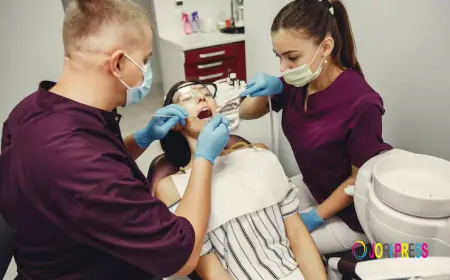The Ultimate Guide to Choosing the Best Swimming Gear for Every Skill Level
Discover the best swimming gear for beginners, intermediates, and professionals. Learn essential equipment, maintenance tips, and how to adapt gear for pool or open-water swimming.
Swimming combines health, enjoyment, and relaxation in perfect harmony. Whether you're swimming for fitness, unwinding after a long day, or training for a swimming competition, the advantages it offers are both physical and mental. To get the most out of swimming, having the right equipment tailored to your skill level is essential. The right swimming gear can boost your comfort, safety, and performance in the water.
Equipping yourself properly enhances your swimming technique and transforms your overall experience in the pool or open water. This guide breaks down the essential swimming gear needed for beginners, intermediate swimmers, and professionals, along with maintenance tips to keep your equipment in top-notch condition. For more tips on swim health and safety, check out swim health & safety.
Essential Equipment for Beginners
If you're new to swimming, focus on tools that build confidence and ensure comfort. Here's a must-have list for beginners:
-
Swim Goggles
Goggles protect your eyes from chlorine and allow clear underwater visibility.
Tip: Choose adjustable goggles for a better fit. For outdoor swimming, consider goggles with tinted or mirrored lenses to reduce glare.
-
Swim Caps
Caps secure your hair, minimize drag, and protect it from exposure to chlorine.
Recommendation: Silicone swim caps are durable and easy to use, making them great for new swimmers.
-
Training Swimsuits
A snug-fit swimsuit is vital for comfort and ease of movement in the water.
Advice: Opt for chlorine-resistant fabrics for extra durability. One-piece swimsuits are ideal for providing a secure and supportive fit.
Equipment to Improve Technique for Intermediate Swimmers
Once you’re comfortable in the water and have mastered the basics, specialized tools can help refine your technique and develop strength. Consider investing in the following essentials to elevate your swimming skills:
-
Kickboards
These are great for isolating your legs and focusing specifically on improving your kicking strength and form.
Pro Tip: Look for lightweight, sturdy options suitable for a range of drills.
-
Pull Buoys
Pull buoys are excellent for honing your arm strokes and improving body alignment in the water.
Suggestion: If you’re just starting with pull buoys, start with smaller ones, then move to larger sizes as you advance.
-
Swim Fins
Perfect for enhancing leg strength and refining your kick technique.
Advice: Short fins are ideal for better control and precision during training sessions.
Tools for Advanced Swimmers
For experienced swimmers wanting to push their limits, advanced gear can help perfect your techniques and improve performance:
-
Swim Paddles
Paddles add resistance to your strokes, helping to strengthen your arms and improve precision.
Tip: Start with smaller paddles to minimize the risk of shoulder strain and progress to larger models gradually.
-
Tempo Trainers
These clever tools allow swimmers to maintain a consistent pace and enhance overall speed.
Advice: Use a tempo trainer to set and gradually increase your pace while concentrating on maintaining good form.
-
Swimming Mirrors
Mirrors provide immediate visual feedback, helping improve posture and alignment in the water.
Suggestion: Incorporate these into your practice sessions for real-time corrections and better swim mechanics.
Competitive Swimmers’ Must-Have Gear
Competitive swimmers need gear designed for intense training and high-stakes events. Here's what they shouldn’t be without:
-
Snorkels
Using snorkels allows swimmers to train their strokes without worrying about disrupting their breathing rhythm.
Advice: Snorkels are ideal for endurance drills and can also help build lung capacity over time.
-
Racing Suits
Made from advanced materials, racing suits minimize drag and enhance speed in the water.
Tip: Reserve your racing suits for competitions to maintain their condition.
Adapting Swimming Gear to Your Environment
Different swimming environments require specialized equipment. Here’s how to tailor your gear to fit your swimming location:
Open Water Swimming
-
Thermal Wetsuits
Essential for keeping you insulated in colder waters.
-
Safety Buoys
Brightly colored buoys improve visibility and enhance safety in open waters.
Pro Tip: Always assess swimming conditions thoroughly before venturing into open water.
Pool Swimming
-
Chlorine-Optimized Gear
Chlorinated pools can be harsh on equipment. Opt for anti-fog goggles and chlorine-resistant swimsuits to ensure durability.
Advice: Regularly rinse your gear to reduce chlorine damage and extend its lifespan.
Maintenance Tips for Swimming Gear
Proper care is essential to ensure the longevity and hygiene of your equipment. Here’s how to keep your gear in peak condition:
-
Rinse After Each Use
Use fresh water to rinse off chlorine, salt, or residues from equipment after every swim.
Reminder: Avoid exposing your gear to direct sunlight, as it can cause materials to degrade over time.
-
Store Correctly
Use a breathable mesh bag to store your equipment in a cool and dry place.
Tip: Proper storage reduces bacterial growth and prevents unpleasant odors.
Final Thoughts
Choosing the right swimming gear suited to your skill level and specific goals can vastly improve your swimming experience. Beginners should focus on essentials that promote comfort and confidence. Intermediate and advanced swimmers can explore gear that enhances techniques and builds strength. Meanwhile, competitive swimmers require top-quality equipment to optimize performance in and out of tournaments.
Taking proper care of your swimming tools ensures they remain effective and last for years. Whether you’re a fitness enthusiast, a recreational swimmer, or preparing for professional events, equipping yourself with the best tools is the key to an enjoyable and productive experience in the water.
Gear up, take the plunge, and make every swim session count!
What's Your Reaction?
 Like
0
Like
0
 Dislike
0
Dislike
0
 Love
0
Love
0
 Funny
0
Funny
0
 Angry
0
Angry
0
 Sad
0
Sad
0
 Wow
0
Wow
0















































